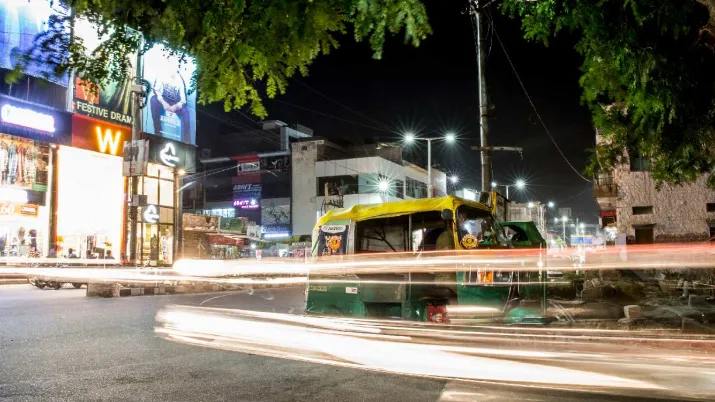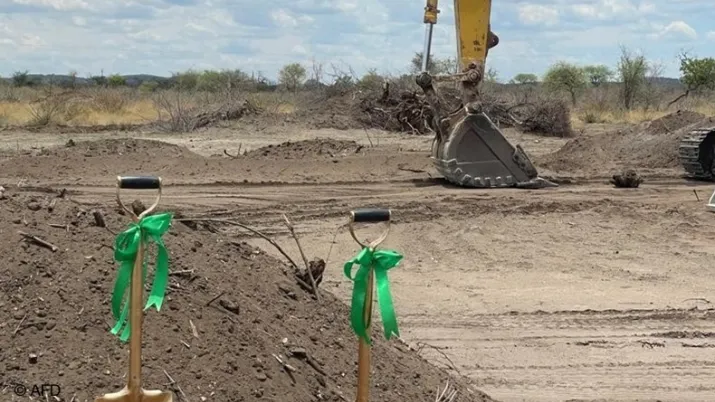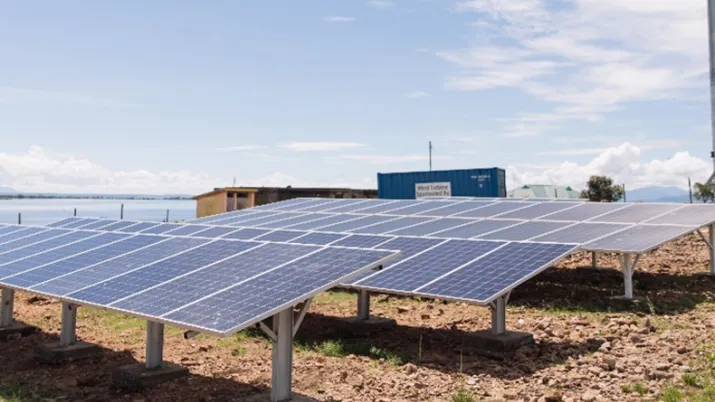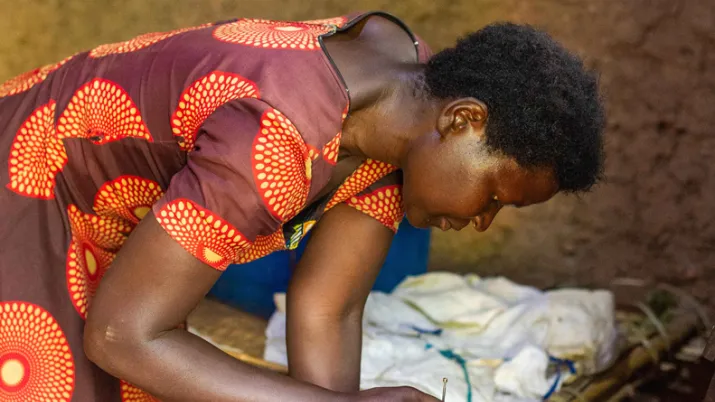Share the page
KENYA: Seven Forks solar power plant
Project


-
Project start date
-
Status
Ongoing
-
Project end date
-
-
Project duration
-
20 years
-
AFD financing amount
-
€ 60 000 000
-
Location
-
Kamburu, Kenya
-
Type of financing
-
Beneficiaries
-
Kenya Electricity Generating Company (KenGen)
This project aims to finance construction of a 42.5 MWp photovoltaic power plant with a pilot storage solution, near the Kamburu dam, one of the dams on the Seven Forks Cascade.
Context
Kenya’s electricity sector is one of the best performing in Africa, with 90 % of its electricity mix made up of decarbonized energy, mainly hydro and geothermal.
However, Kenya has barely begun to exploit its solar energy and thermal power plants are still widely used during peak periods, particularly during droughts.
KenGen, the public power generation operator, is looking to develop a pilot solar project linked with the Seven Forks dam to improve coverage during peak hours.
Description
The aim of this project is to contribute to a sustainable energy matrix by producing environmentally sound electrical energy and avoid the generation of carbon emissions at reasonable economic costs.
The 47.5 MW Seven Forks solar power plant will produce 102.7GWh and will be the first solar power plant developed by KenGen with a pilot storage solution.
The project will involve 4 components:
- Construction of 42.5 MW Solar PV plant connected to the national grid;
- Installation of a battery energy storage system;
- Restoration of environmental biodiversity and mitigation measures towards local communities;
- Technical assistance and capacity building.
The total project cost is estimated at €60 million.
Impacts
The project is expected to:
- Reduce the overall cost of producing electricity in Kenya;
- Avoid more than 52,700 ktCO2eq/year of greenhouse gas emissions;
- Allow KenGen to store more water in the main reservoir in anticipation of the dry season;
- The 3 MW/ 4.5 MWh storage system will be the first battery storage device installed in Kenya, and will have a knock-on effect for the sector;
- Contribute to the economic development of Kenya while mitigating climate change.











